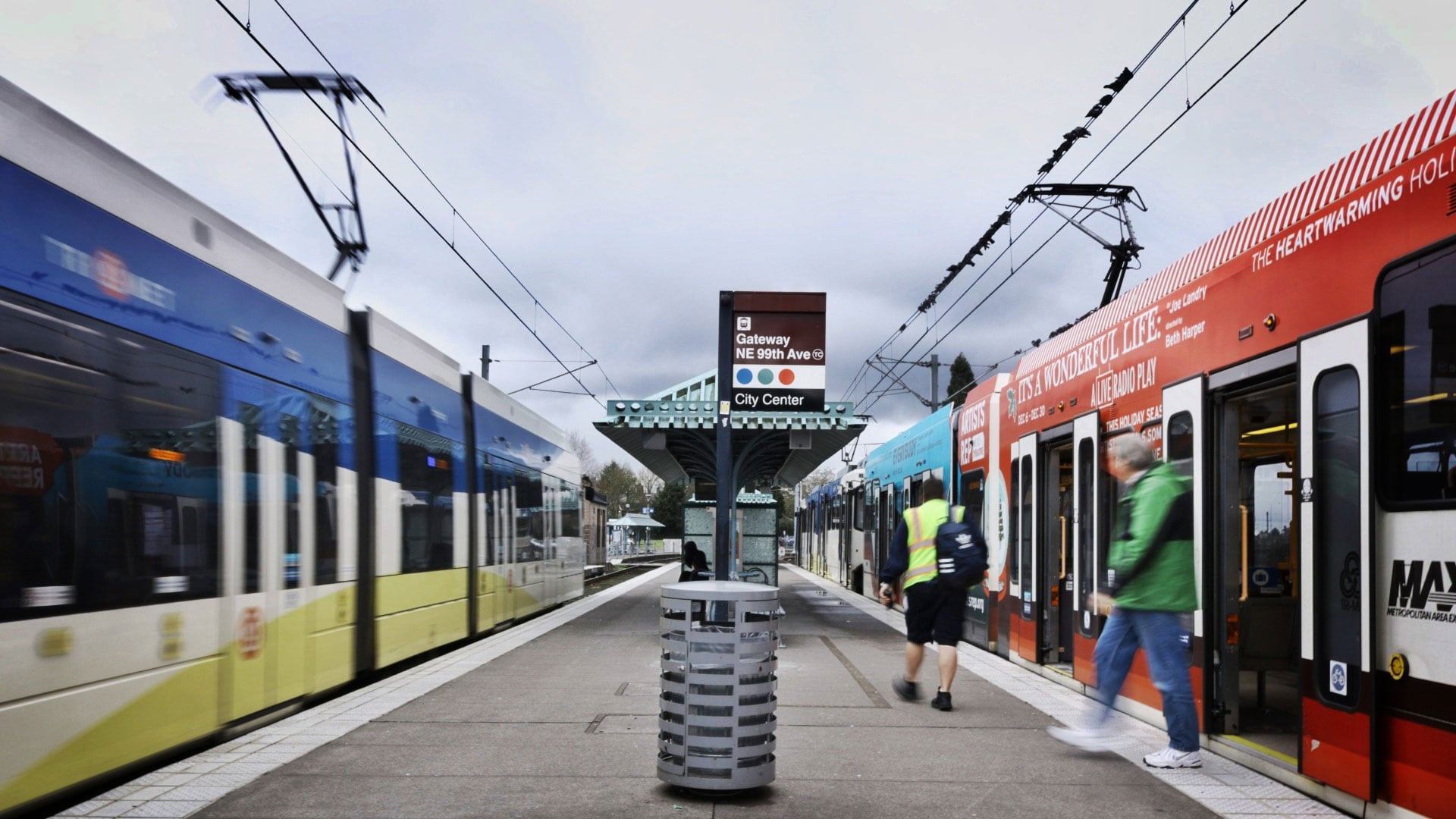Sometimes a shove is more than a shove.
In Oregon, misdemeanor assaults—physical attacks that don't involve a weapon or cause life-threatening injuries—are automatically elevated to felonies if the victim belongs to a protected class: police officers, EMTs, taxi drivers, youth correctional officers or anybody driving public transit.
Now TriMet has asked the Oregon Legislature to expand that list.
House Bill 2677 would expand Oregon's definition of felony assault in the third degree to any assault in which the victim is a public transit employee at work—even if that employee isn't behind the wheel, including the workers who clean bus stations and MAX platforms, and civilian fare inspectors.
That would make as little as shoving any TriMet employee a felony, with a maximum penalty of five years in prison.
Expanding felonization is a sticky issue for the Legislature, which moved in 2018 to make drug possession a misdemeanor but has in recent years elevated some misdemeanor assaults to felonies.
Democrats, who control Salem, are determined to reduce incarceration and spending on criminal justice. At the same time, they are closely aligned with organized labor.
Bills that make assaults more serious because of the victim's job are beloved by labor unions representing those employees.
Criminal justice reformers are less enamored.
"How is it that some vocations are more honored, more important, more 'special' than another?" Gail L. Meyer of the Oregon Criminal Defense Lawyers Association asked lawmakers in 2017, when a similar bill died in committee. "There are scores of vocations that require an interaction with persons who are in an agitated state: teachers, public librarians, facility custodians, public defenders.…Where will this parade of 'specialness' end?"
The bill is the lastest testament to the power of labor unions. It is no coincidence that highway workers, nurses and public transit workers, all professions known to have influential unions, have pushed for special protections under Oregon's criminal law since 2017.
But this time, the prospect of felonization has brought TriMet and its union together.
TriMet and Amalgamated Transit Union Local 757, the union that represents public transit employees, have made HB 2677 a legislative priority this year.
TriMet general manager Doug Kelsey points to employee safety as one issue on which the agency's management has worked to build rapport with its labor union. "There's an example where we work with the ATU," Kelsey told WW this month.
He says the bill is a top legislative priority for TriMet this session, and TriMet is also installing partial barriers to separate bus drivers from passengers. The barriers are another compromise TriMet is making with ATU 757—the union has been demanding them for decades.
In 2017, when the bill did not get a vote, two bus drivers testified about being spat on and several others recounted occasions when they'd been threatened or scared.
"We just want a bill that makes it a higher priority when someone gets assaulted out on the platform cleaning. Something needs to be done," says union president Shirley Block.
Block says bus drivers get hit, shoved and spat on—and not always when they're in the driver's seat.
According to TriMet data, there were 26 simple assaults on employees in 2017. There were six aggravated assaults, which cause significant injuries to the victim. (The bill would ensure all those assaults could be charged as felonies.)
ATU 757 says it believes TriMet's numbers are too conservative and undercount the number of assaults, though it did not provide data to back up that claim. TriMet's data does not show assaults on the rise.
One influential lobby may stand in the way of the change: The Oregon Criminal Defense Lawyers Association. Although the group hasn't yet taken a formal position on HB 2677, it will probably echo its past objections to similar bills.
Oregon has, in recent years, made it a felony to assault taxi drivers, EMTs, bus drivers, highway workers and youth corrections officers.
"We know that increasing penalties does little to deter crime," says Mary Sofia, lobbyist for the association. "While we understand the desire for crime to be taken seriously, we think there are better ways to go about preventing crime than by increasing penalties—especially by adding a vocational element."
Defense lawyers say they fear the bill would produce disproportionate arrests of homeless people and people of color. "We are incredibly concerned with any type of bill or proposed legislation that increases crime without considering collateral consequences," Sofia says.
Rep. Chris Gorsek (D-Troutdale), the bill's sponsor, is a former Portland police officer. He says defense lawyers are right to think about disparities.
"These are very real concerns," he says. "I am committed to ensuring that we work to address over-criminalization and the needs of the houseless community, in addition to making this minor change to state law. Which is why I've also favored decriminalizing fare enforcement as well."
But he says the bill addresses a real public-safety gap. "We want drivers to feel they have just as much protection under the law," Gorsek says, "when they get up and make the effort to de-escalate situations as they do when driving."
Clarification: This story originally paraphrased TriMet GM Doug Kelsey, who said HB 2677 was TriMet's only legislative priority. In fact, it is one of three bills the agency supports.

